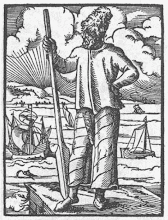
The Chinese term usually translated as "propaganda"—宣传 or xuanchuan—has none of the sinister connotations we associate with its English equivalent. (Propaganda is also the name of a serviceable jiuba in Wudaokou, but I'll let that be a story for another time.) Xuanchuan's meaning is closer to the Latin origin of our word: propagation, dissemination, or if you like, "publicity." Xuanchuan goes on as much on Madison Ave. as in the secret recesses of Zhongnanhai. But plenty of xuanchuan is political, and the classic form remains the large red banner. At the opening ceremony of HBA's academic term, I was duly greeted by an enormous banner proclaiming that I was at the opening ceremony of HBA's academic term.
And that's the thing—most of these propaganda banners are somehow disappointing once you've translated them. I can't help but feel that some revolutionary credibility has been lost by a Communist Party goes to tremendous expense and effort to exhort the people not to spit on the sidewalk. But here, I present the Readers of the Foreign Devil with very poor photographs of some gems of the genre. Unfortunately I could not find one with the ubiquitous catchword hexie, or "harmonious," which has been the cornerstone of the government's labors to keep the people well-behaved during the Olympics. But nevertheless these photos are fairly representative of the state of xuanchuan in today's China.
I. (at the top of the post) This is a more or less standard propaganda banner, over the front entrance to the main classroom building at the university. It's composed in a peculiar jargon that really isn't used at all outside of banners like this one, but when decompressed, it reads: "Earnestly Study to Impement the Spirit of the Seventeenth Congress of the Party; Steadfastly and Unwaveringly Walk the Great Road of Socialism with Chinese Characteristics." And this translation is actually a bit less compressed and gnomic than the original banner.

II. "Honest Testing Starts with Me." This banner went up yesterday, over the rear entrance to the main classroom building, where students rushing to exams are most likely to enter. This week is final exams for every college student in Beijing Municipality, and with one set of standardized exams for the whole region, there is a tremendous financial incentive for those bureaucrats entrusted with the test forms to let a few answers slip out.
III. (Unfortunately my photos of this banner are so poor as to be illegible.) This third banner, hanging in the main dining hall of the No. 2 Cafeteria, combines class conflict and antiquarianism in a way only possible in China. It's a poem from the Tang dynasty, by 李绅:
鋤禾日當午,
汗滴禾下土。
誰知盤中餐,
粒粒皆辛苦?
And for any unchinesed Readers of this blog, I've come up with what I think is more or less an accurate translation:
Beneath the noonday sun he leads the plow;
The ground is wet with sweatdrops from his brow.
But who knows that their plate, heaped up with grain,
Was purchased—every bite—with so much pain?
And I'll leave you on that happy note.


2 comments:
I like that translation--preparation for the rest of Standebuch? I'm just kidding--there's no rush.
Sounds like you're having a good, albeit intense, time. I, too, remember being struck by the sentiment that "Beijing is huge," so I disagree with Tanya and think that the title was entirely apropos.
I realized when I put up that poem that I've let the Staendebuch project fall completely behind. If the intensity of social life and the grind of academic life in Beijing leave me any time, I'll try to get started again.
Post a Comment